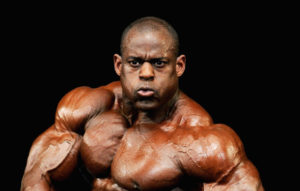Conservatives in South Korea should be in a tricky position. The nation is currently led by a liberal — who is the most popular president in its democratic history. Moon Jae-in’s administration oversaw one of the world’s best responses to the pandemic, and under his leadership the Korean economy has been roaring, even as much of the developed world has struggled. The last conservative president, meanwhile, was disastrous: Park Geun-hye was impeached, removed from office and later convicted for corruption.
And yet, with the presidential election less than a month away, the conservative candidate Yoon Seok-yeol is showing a slight edge in polling over his liberal rival Lee Jae-myung. How have the country’s conservatives been able to regroup in just five years?
A major reason for this resurgence is the sharp conservative turn of young South Korean men, who are increasingly animated by aggressive misogyny and anti-feminism. These young men have found their champion in Lee Jun-seok, a 36-year-old, Harvard-educated political pundit who became the leader of the conservative opposition party last summer. Warning of the “totalitarian tendency” of feminism and accusing the ruling Democratic Party of fixating on a “pro-woman agenda”, Lee and his supporters have injected a jolt of energy into the South Korean Right.
Until recently, South Korean politics followed a conventional demographic pattern. The younger generation leaned liberal and the older generation leaned conservative, with only marginal differences between the sexes. That began to change, however, after the emergence of the country’s #MeToo movement in early 2018. Since then, politics has polarised along gendered lines.
A January 2022 survey by Gallup Korea, for example, showed that 48% of male voters in their 50s approved of President Moon, as did 46% of female voters in same age group. For voters in their 70s, the gender gap was similarly minuscule — 36% approval among men against 34% approval among women. But among voters in their 30s, only 35% of men approved of the President, compared to 51% of women. The gap was even starker for voters in their 20s: 18% approval among men versus 42% among women. In other words, men in their 20s are more conservative than men in their 70s.
While sexism in South Korea is nothing new, the aggrieved misogyny animating young men is of a more recent vintage. In their 2019 book Men in Their 20s, journalist Cheon Gwan-yul and data scientist Jeong Han-wool found that the young generation’s misogyny was marked by over-the-top hostility against feminism: 58.6% of South Korean men in their 20s said they strongly opposed feminism, with 25.9% rating the intensity of their opposition as 12 on a scale from 0 to 12.
Unlike older men, who held to a patriarchal worldview defined by rigid gender roles, young men reject the sense of masculine duty that typically accompanies old-school sexism. Rather, they see themselves as victims of feminism and define themselves politically by this sense of victimisation.
Among young South Koreans, gender is emerging as the primary dividing line between liberals and conservatives. For the older generation, politics was largely about attitudes toward South Korea’s dictators and the democracy movement of the 1970s and 80s. But for South Koreans under 30, who were born into a wealthy and secure democracy, debates about whether economic growth is more important than freedom are no longer relevant.
Today’s young people came of age after the Asian Financial Crisis of 1997 had destroyed South Korea’s previous model of lifetime employment, and they have spent their entire lives preparing for and taking a series of ruthlessly competitive examinations — for prestigious high schools, then colleges, then large corporations. Instead of poverty and oppression, their main struggle is to achieve economic security in a society that is often brutal to those who lose out.
In this new environment, young women have fared better than before. Sexism, of course, remains a problem: a recent study estimated that structural sexism depresses South Korean women’s wages by between a quarter and a third compared to South Korean men. But since 2009, more women have attended college than men, and in some standardised examinations, they dominate to such an extent that men now benefit from affirmative action. In an exam selecting mid-level civil servants, for example, a rule requires an additional hire if one of the sexes fall below 30% of the overall staff; that is, if a department is hiring ten new employees and two men and eight women make the cut, the department is required to pass one more man and hire eleven employees. In 2021, 79 men and 22 women benefitted from this rule.
The effect of rising autonomy among young women is particularly visible in dating and family formation. In a 2021 study that surveyed residents of Seoul, only 58% of men in their 20s said they had had sex in the past year, a lower rate than for men in their 60s. The numbers were similar among women in their 20s, but for a different reason. While most celibate men said they didn’t have sex because they couldn’t find a partner, most celibate women said it was because they had no interest in sex.
Young Korean women are also increasingly sceptical of marriage and childbirth. According to a survey by the magazine SisaIN, only 8.1% of young women and 0% of self-identified feminists agreed with the statement “People must marry”, versus 37% of the population overall. And South Korea’s fertility rate, which fell to 0.84 births per woman in 2020, is the lowest in the world.
As sex and marriage become matters of individual choice, they are also becoming, for men, a luxury for the economically secure. In the Yonsei University study, men who rated themselves as upper middle class were 12 percentage points more likely to say they had had sex in the previous year than men who rated themselves as lower class. A 2019 analysis by KBS News, which studied men in their 30s, found a clear linear correlation between income and marital status: 86.3% of men in the top income decile were married, compared to only 20.3% in the bottom decile.
These divisions around sex, marriage, and feminism are increasingly mapping onto political divisions. For instance, another study, a December 2021 survey of people aged 20–35, found that those who say they could marry but did not want to were more likely than average to be college-educated liberal women. On the other hand, those who said they wanted to marry but couldn’t were more likely than average to be conservative men who did not attend college.
Frustrated by these arrangements, many young men have focused their ire on women and feminism, which they blame for their economic and sexual frustrations. These young sexists have poured their anger into conservative politics, reviving the country’s formerly moribund Right. They scored their first major political victory in the Seoul mayoral by-election in April 2021, in which exit polls showed a staggering 72.5% of male voters in their 20s voting conservative. This win was followed by the rise of Lee Jun-seok, who made anti-feminism his calling card. Despite never previously winning an election — he had tried three times and failed — Lee was elected president of the main conservative party, the People Power Party, in June 2021.
In the current presidential race, Lee and his sexist supporters have been a major force for the PPP presidential candidate, Yoon Seok-yeol. Lee and Yoon initially feuded, until Lee loudly quit Yoon’s campaign in late December, in part because Yoon courted the support of a few prominent feminists in an attempt to appeal to young women. With Lee and his backers gone, however, Yoon’s support cratered. His double-digit polling lead over his main rival, the liberal Lee Jae-myung, evaporated, and by early January, he had fallen into a double-digit hole. To regroup, Yoon ditched the feminists and welcomed Lee Jun-seok back to the campaign.
Since Lee’s return, Yoon has strongly focused his campaign on appealing to the young misogynists. He has, for instance, promised to eliminate the Ministry of Gender Equality, a bête noire of the sexists, who consider it to be a feminist cabinet ministry. And on his Instagram account, he has peddled alt-Right memes, including a photo of himself buying anchovies (“myeol-chi”) and beans (“kong”) at a supermarket — a dog-whistle for “myeol-kong”, or “Exterminate Communists.” After the shift in tactics, Yoon’s polling numbers soon bounced back, taking a narrow lead over Lee Jae-myung at the time of this writing.
South Korean politics is undergoing a transition. Since the end of dictatorship in 1987, the country’s politics was largely about litigating that past. Conservatives argued that political oppression had been worth it to escape dire poverty, while the liberals focused on the lack of freedom and the crimes of the dictators. The humiliating 2017 impeachment of Park Geun-hye, the daughter of dictator Park Chung-hee, was the final nail in the coffin for that old conservative argument.
Rather than evolving toward the embrace of sound conservative principles like the limited government, however, Korean conservatives have found a new lease on life by appealing to sexism and male grievance politics. If Yoon Seok-yeol does prevail on 9 March, his victory will be touted as the triumph of anti-feminism. That will be an ominous sign for South Korea’s future.
Disclaimer
Some of the posts we share are controversial and we do not necessarily agree with them in the whole extend. Sometimes we agree with the content or part of it but we do not agree with the narration or language. Nevertheless we find them somehow interesting, valuable and/or informative or we share them, because we strongly believe in freedom of speech, free press and journalism. We strongly encourage you to have a critical approach to all the content, do your own research and analysis to build your own opinion.
We would be glad to have your feedback.
Source: UnHerd Read the original article here: https://unherd.com





